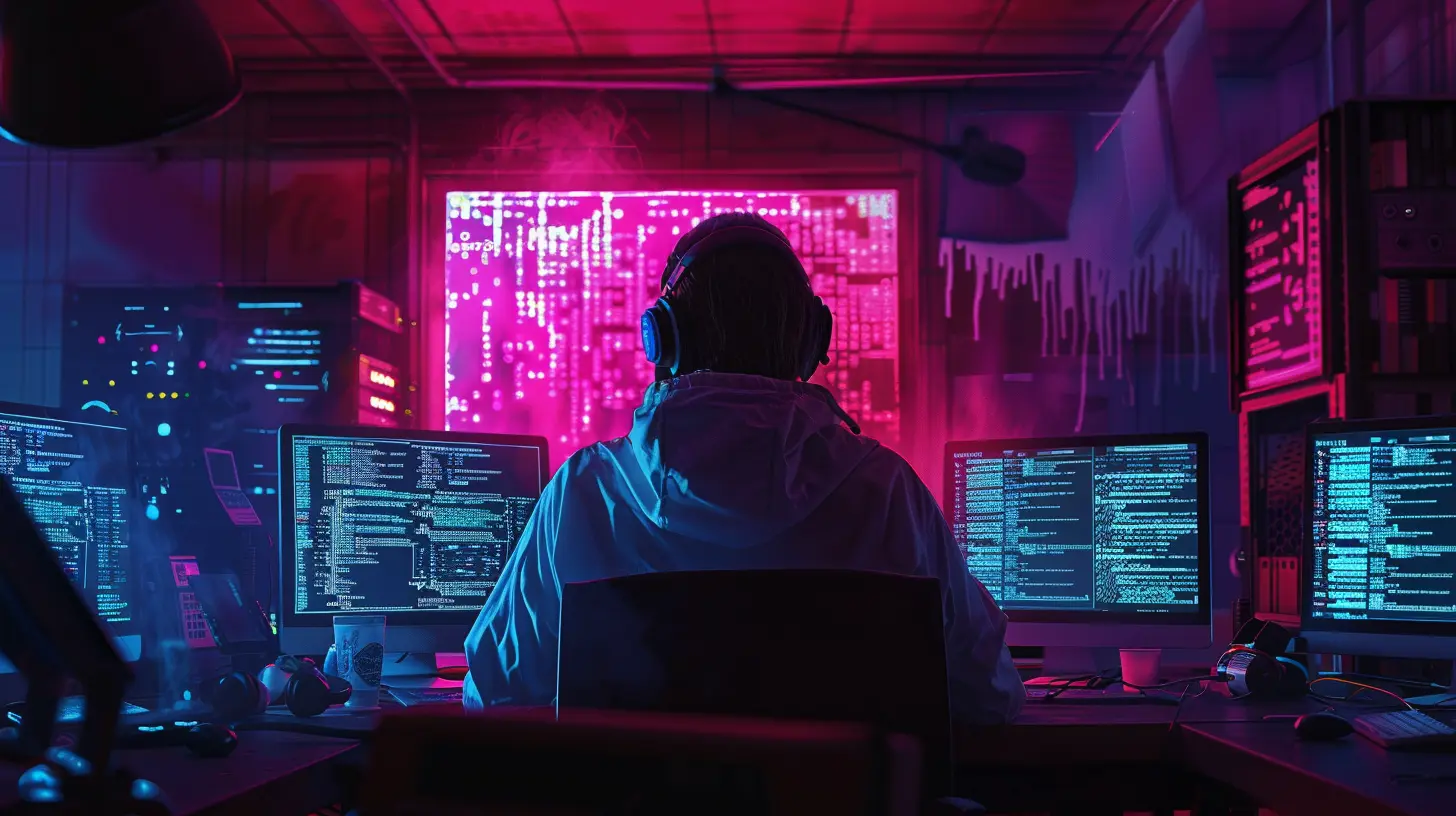The Ethics of Beta Testing: Confidentiality and NDA Agreements
2 June 2025
Let’s talk about something that every gamer has probably dreamed about at least once—getting early access to a game still in development. Yeah, I’m talking about beta testing. It’s like being handed the keys to the gaming kingdom before anyone else. You get to play the game, find bugs, and feel super important. But here’s the catch: with great power comes great responsibility. And in this case, the responsibility involves confidentiality and those pesky NDA (Non-Disclosure Agreement) contracts.
Let’s dive into the nitty-gritty world of beta testing, where ethics take center stage. Don’t worry, though—I’m not here to bore you with legal jargon. Instead, I’ll keep it light, fun, and packed with info that’ll make you look like a genius next time you talk about beta testing ethics on Reddit or Discord. Sound good? Cool, let’s roll.
What’s the Deal with Beta Testing?
First off, let’s get on the same page about beta testing itself. Imagine a game developer spends months (or years) pouring their heart and soul into creating what they hope will be the next big thing. Before they release it to the public, they need a select group of players to give it a trial run. Enter beta testers.Now, being a beta tester isn’t just about getting early access and bragging to your friends. It’s about playing the game with the intent to break it—find glitches, bugs, and balance issues. Think of it as being both a gamer and a detective. Cool, right? But here’s where it gets tricky: you’re not just playing a game; you’re getting access to something that’s still under wraps. And protecting that early access comes with rules.
Confidentiality: Keep Your Lips Sealed
Alright, let’s talk about the big word here: confidentiality. Beta testers often get access to a lot of sensitive stuff—unfinished storylines, unreleased gameplay mechanics, and even things like character designs that nobody outside the studio has seen yet. If that kind of info leaks, it can totally ruin the developer’s plans.Picture this: you’re unwrapping a gift for your birthday, super excited about what’s inside, but someone shouts the spoiler from across the room. Total buzzkill, right? That’s what game developers are trying to avoid when they ask beta testers to keep things confidential.
Developers depend on beta testers to not share screenshots, videos, or even descriptions of the game. It’s like being inducted into a secret club. You don’t go blabbing about the handshake, do you? The stakes are high here because any leak could spoil the game’s release or give competitors an unfair advantage.
What Exactly Is an NDA?
Oh boy, the infamous NDA—Non-Disclosure Agreement. Sounds intimidating, right? It’s really not as scary as it sounds, I promise. An NDA is just a legal document that says, “Hey, you promise not to spill any beans about what you see during testing.” It’s the developer’s way of protecting their baby (the game) from potential harm.Think of an NDA like a Pinky Promise 2.0. It’s a formalized version of saying, “Cross my heart and hope to die, I won’t leak a single screenshot.” NDAs outline what you can and can’t say or do while participating in the beta. For example, you might not be able to stream gameplay, post about it on social media, or even tell your dog about it (okay, maybe not the last one, but you get my point).
Breaking an NDA can have some serious consequences. We’re not talking about getting grounded or a slap on the wrist. Breaching an NDA can lead to fines, lawsuits, and being blacklisted from future beta tests. Yikes.
Why Ethics Matter in Beta Testing
Now, you might be thinking, “Okay, I get the rules, but why do they matter so much?” Glad you asked. Ethics play a huge role here because beta testing isn’t just about the individual tester. It’s about the entire gaming community.When you agree to a beta test, you’re essentially entering into a trust contract with the developers. They’re trusting you to respect their hard work and keep things under wraps. Your ethical responsibility during beta testing can make or break the success of a game. Leaks can lead to spoilers, undercut the hype, or even skew public perception of an unfinished product.
Think of it like baking a cake. If someone snatches a half-baked slice and tells everyone it’s burnt, nobody’s going to want a piece when the full cake’s ready. Beta testers help ensure the final product is polished and ready for the spotlight.
The Challenges of NDAs and Confidentiality
Let’s be real—NDAs can sometimes feel like a bit of a buzzkill. You’re sitting there, hyped about this super cool game you’re testing, and you can’t tell anyone about it. Not even your best gaming buddy. Ugh, the struggle is real.Social media makes things even trickier. It’s so tempting to post a screenshot or even a cryptic tweet like, “OMG, this new game I’m testing is FIRE!” But nope, can’t do it. One slip can have massive consequences. Developers monitor beta testers like hawks, and thanks to metadata and watermarked game builds, they can track leaks back to the source faster than you can say, “Oops.”
On top of that, some people don’t even read the NDA before signing it. Big mistake. Always read the fine print, my friends. You don’t want to accidentally break a rule you didn’t know existed.
How to Be an Ethical Beta Tester
So, how do you avoid being that person who ruins everything? Here’s a handy checklist to keep you on the straight and narrow:1. Read the NDA: Seriously, read it. Don’t skim, don’t scroll, just read it.
2. Follow the Rules: If the developer says no screenshots, then no screenshots. Easy enough, right?
3. Give Honest Feedback: Your job isn’t just to keep secrets—it’s to help improve the game. Be thorough and constructive with your feedback.
4. Stay Off Social Media: Don’t even hint at what you’re testing. No winks, nudges, or Morse code messages.
5. Ask Questions: If you’re unsure about what’s allowed, ask the developer or the team managing the beta. Better safe than sorry.
Being an ethical beta tester means respecting the game, the developer, and the gaming community as a whole. You’re part of a bigger picture, and your role is crucial.
Why Developers Love (and Need) Ethical Testers
Game development is tough. We’re talking late nights, burnout, and enough coffee to fuel a small army. Beta testers are like the unsung heroes who help developers catch the stuff they might have missed. And ethical testers? They’re the MVPs.When you respect confidentiality and NDAs, you’re showing developers that you value their hard work. That kind of trust goes a long way. Plus, ethical testers often get invited back for future betas. It’s like having a membership card to the coolest club ever.
The Bigger Picture: Community and Trust
At the end of the day, beta testing isn’t just about you—it’s about the whole gaming community. When everyone plays by the rules, the end result is a game that’s better for all of us. It’s a win-win.Remember, every major game you’ve ever loved started somewhere. And chances are, it went through a beta phase with a group of testers who kept things under wraps and gave valuable feedback.
So, if you ever get the chance to beta test, don’t take it lightly. Treat it like an honor, because it kind of is.
Final Thoughts
Beta testing is an incredible experience, but it comes with some serious responsibilities. Confidentiality and NDAs might seem like a pain, but they’re there for a reason. By following the rules and staying ethical, you’re not just helping developers—you’re contributing to the future of gaming. That’s pretty awesome, don’t you think?So, next time you hear someone talking about beta testing, you can nod knowingly and maybe even toss around the words “ethics” and “NDAs” like the gaming expert you are. Just remember: with great beta access comes great responsibility.
all images in this post were generated using AI tools
Category:
Beta TestingAuthor:

Whitman Adams
Discussion
rate this article
3 comments
Trixie McTiernan
Great insights! Balancing innovation and privacy in beta testing is crucial.
June 15, 2025 at 3:52 AM

Whitman Adams
Thank you! Striking that balance is essential for fostering trust and ensuring responsible innovation.
Blaze Green
Beta testing is crucial for game development, but balancing confidentiality with transparency is a challenge we must address.
June 12, 2025 at 5:00 AM

Whitman Adams
Thank you for your insight! Striking the right balance between confidentiality and transparency is indeed essential to ensure both trust and constructive feedback during beta testing.
Kenzie Torres
Transparency fosters trust; ethical beta testing drives innovation!
June 10, 2025 at 2:48 AM

Whitman Adams
Thank you for your insightful comment! I completely agree—transparency and ethical practices in beta testing are crucial for building trust and driving innovation.



